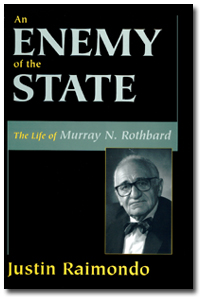Readers of Thomas DiLorenzo's "How Capitalism Saved America" and libertarians generally will be familiar with this story, but it's worth repeating at least once a year. The following came from the
Foundation for Economic Education:
The Real Thanksgiving Story
In the middle of December 1620 the Pilgrims landed at Plymouth Rock, leaving behind the sinfulness of the “old world” to make a “new Jerusalem” in America. Three years later, in November 1623, they had a great feast thanking God for getting them through an earlier famine, and now for a bountiful crop.
What had created the earlier famine and then the bountiful crops? The story is told in the diary of Governor Bradford, who was one of the elders of that early Puritan colony.
At first, they decided to turn their back on all the institutions of the England that had been their home. This included the institution of private property, which they declared to be the basis of greed, averse, and selfishness. Instead, they were determined to live the “Platonic ideal” of collectivism, in which all work would be done in common, with the rewards of their collective efforts evenly divided among the colonists. Farming was done in common, as well as housekeeping and child raising. This was supposed to lead to prosperity and brotherly love.
But their experiment in collectivism did not lead to prosperity or brotherly love. Rather, it created poverty and envy and slothfulness among most of the members of this little society. Here is Bradford’s description of what communism created among the Pilgrims:
“The experience that was had in this common course and condition, tried sundry years and that amongst godly and sober men, may well evince the vanity of that conceit of Plato's and other ancients applauded by some of later times; that the taking away of property and bringing in community into a commonwealth would make them happy and flourishing; as if they were wiser than God. For this community was found to breed much confusion and discontent and retard much employment that would have been to their benefit and comfort. For the young men, that were most able and fit for labor and service, did repine that they should spend their time and strength to work for other men's wives and children without any recompense. The strong… had no more in division of victuals and clothes than he that was weak and not able to do a quarter the other could; this was thought injustice. The aged and graver men to be ranked and equalized in labors everything else, thought it some indignity and disrespect unto them.
“And for men's wives to be commanded to do service for other men, as dressing their meat, washing their clothes, etc., they deemed it a kind of slavery, neither could many husbands well brook it. Upon the point all being to have alike, and all to do alike, they thought themselves in the like condition, and one as good as another; and so, if it did not cut off those relations that God hath set amongst men, yet it did at least much diminish and take off the mutual respects that should be preserved amongst them… Let none object this is men's corruption, and nothing to the course itself. I answer, seeing all men have this corruption in them, God in His wisdom saw another course fitter for them.”
For two years the harvest time failed to bring forth enough to feed the people. Indeed, many starved and many died of famine. Faced with this disaster, the elders of the colony gathered, Governor Bradford tells us, and decided that another year, and they would surely all die and disappear in the wilderness.
Instead, they decided to divide the property and fields of the colony, and gave each family a piece as their own. Whatever they did not use for their own consumption, they had the right to trade away to their neighbors for something they desired instead.
Now, instead of sloth, envy, resentment, and anger among the colonists, there was a great turnaround in their activities. Industry, effort, and joy were now seen in practically all that the men, women and children did. Bradford writes:
“They had very good success, for it made all hands very industrious, so as much more corn was planted than otherwise would have been. The women now went willingly into the field, and took their little ones with them to set corn; which before would allege weakness and inability; whom to have compelled would have been thought great tyranny and oppression…By this time harvest was come, and instead of famine, now God gave them plenty, and the faces of things were changed, to the rejoicing of the hearts of many, for which they blessed God.”
Indeed, their bounty was so great, that they had enough to not only trade among themselves but also with the neighboring Indians in the forest. In November 1623, they had a great feast to which they also invited the Indians. They prepared turkey and corn, and much more, and thanked God for bringing them a bountiful crop. They, therefore, set aside a day of “Thanksgiving.”
So this November 23rd, when we all sit down with our families and friends to enjoy the turkey and the trimmings, let us not forget that we are celebrating the establishment and triumph of capitalism and the spirit of enterprise in America!
HAPPY THANKSGIVING!


